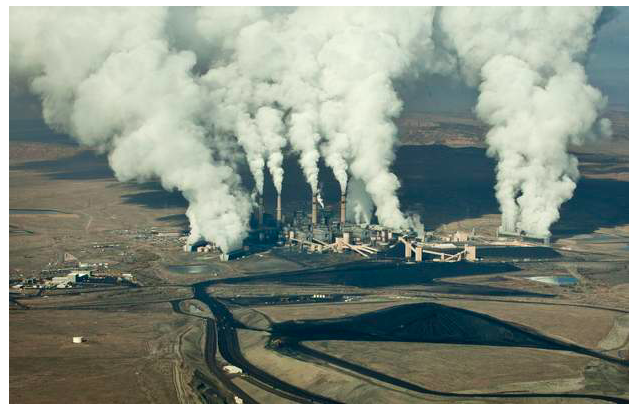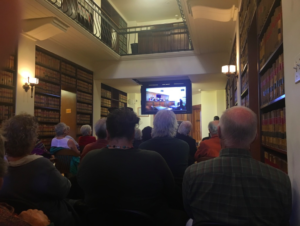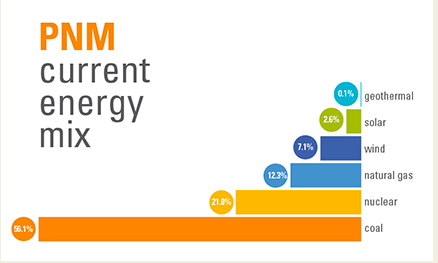Stranded assets are a big barrier to change. Both environmental and economic progress can be stifled by stranded assets. But stranded egos and stranded careers may be even bigger barriers to progress.
Stranded assets
Oxford University defines stranded assets as “assets that have suffered from unanticipated or premature write-downs, devaluations, or conversion to liabilities and they can be caused by a variety of risks.” Simply put, if you’ve got billions invested in the old way of making something, you have a real disincentive to support a new, better way that makes your multi-billion-dollar investment worthless.

Putting on blinders and denying those trends is a lousy strategy. More elegantly, a 2013 report by the Generation Foundation decried “the false comfort of the status quo” and noted bluntly:
The competitive landscape for fossil fuel-intensive companies is losing its attractiveness at an accelerated rate. … Likely increases in regulation, a boom in more cost-effective (economically, environmentally, and socially) alternatives, and growing unpopularity with the public, should lead any thoughtful investor to reconsider the viability of fossil fuel assets being profitable and growing in the future.”
Increasingly, investors realize that stranded assets are still stranded even if you cover your eyes and shout “no no no”. Denial just prolongs your risk while reducing your ability to manage that risk. Investors are getting the point, demanding that even companies like Exxon Mobil provide “more open and detailed analyses of the risks posed to its business by policies aimed at stemming climate change.”
There are no easy answers here. As Joel Makower noted: “The question of how to manage this transition remains open. How do you wind down the fossil-fuel economy in a way that is equitable to shareholders and doesn’t unduly shock the economy — but still recognizes that time is of the essence?”
Stranded egos, stranded careers

I sat in a crowded NM Supreme Court last week and heard lots about stranded assets – but I think I heard even more about stranded egos and stranded careers.
In a nutshell, I was there to hear New Energy Economy argue against efforts by the local utility (PNM) to dig a deeper hole for itself. PNM is attempting to make the ratepayers pay for its stranded assets in coal and nuclear – and to put even more ratepayer money into more of those stranded assets. As New Energy Economy’s Executive Director, lead attorney and all-around dynamo Mariel Nanasi told the New Mexico Supreme Court, this was PNM’s “…attempt to foist uneconomic assets that have enormous associated risks and liabilities from the shareholders to the ratepayers.”
Lawyers argued for hours about what is prudent or imprudent, what is arbitrary and capricious, who had approved what and when, and which precedents applied. That’s what lawyers do.
But underneath all that, I heard something else. I heard the voice of stranded egos and stranded careers from the PNM side. I heard arguments that said, in effect, “we’ve done it this way for 30 years, why change now?” I heard complete denial of not only the negative impacts of coal and nuclear, but of the inevitable policy shift toward renewables. I heard no recognition of the profound shift in costs favoring renewables. I’m pretty sure I heard renewables referred to as “phantom resources.“
I heard powerful echoes of what I’ve encountered over the years: the human problem is bigger than the economic problem. Executives who made their reputations and careers doing things one way are simply unwilling or unable to question that one way. Sure, they have perverse financial incentives to avoid writing down economic assets, at least until they’ve retired and collected their pay-out. But the resistance I’ve seen is deeper and more emotional. It’s when the executives’ identities are so wrapped up in their 30 or 40 years of work, promotions and status. They just can’t cope with seeing that questioned. They don’t want to hear “what you did with your life was great, but it’s not the right answer any more.” They absolutely don’t want to hear “maybe what you did with your life was part of the problem.” I’ve seen it in business, at oil companies and at railroads historically dependent on the margins from coal traffic. I’ve seen it in government, as state and local officials try to force obsolete businesses to keep doing operating when and where it no longer makes any economic sense.
It’s not just executives and leaders. We’ve seen the political consequences of voters whose stranded careers and egos make them eager to believe hollow promises about the return of steel and coal. It now looks like those stranded careers and egos (along with the hollow promises) are leading stranded towns and people to shun retraining and other services that might help them rejoin the world economy.
This isn’t inevitable. It’s not easy to get out of a dead end, but you can do it – as long as you don’t try to just plow ahead blindly. There are often routes to what a respected colleague (in a company weighed down by stranded assets) calls “strategic adaptation”. Those routes are seldom easy and painless. They do have one common first step: recognize the hole you’re in and stop digging.
But if that pig won’t fly…
We’d all like to help our colleagues, clients and others find those peaceful routes to “strategic adaptation”. Sometimes, though, that just doesn’t work. Sometimes the stranded egos and careers keep you from rational progress. Those in control of key institutions continue to defer, deny, delay in order to defend the way they’ve always done business. That may leave you with no choice except to defy and even disrupt. If you’re dealing with a PNM, and it resists change at all costs, then maybe you have to question whether the PNMs of the world can be trusted with the monopoly status they’ve been given over the years.

I then heard New Energy Economy’s Mariel Nanasi say the same thing more eloquently to the Supreme Court justices: “Essentially PNM invested in an old used non-functioning Ford Pinto — when ratepayers could have had a brand new Tesla for half the price — without any comparison shopping.”

Stranded egos and stranded careers can make very smart people want to not only buy that Pinto, but then drive it down the highway (as fast they can get it to go) looking through the rear-view mirror of past practice instead of looking through the windshield at the future that’s coming at them faster and faster. It would be great if you could talk them out of it. But at the very least, make sure they don’t make you pay for the Pinto – and don’t get in the car with them.
[Opinions in this blog are solely those of Scott Nadler and do not necessarily represent views of Nadler Strategy’s clients or partners, or those cited in the post. To share this blog, see additional posts on Scott’s blog or subscribe please go to nadlerstrategy.com.]
